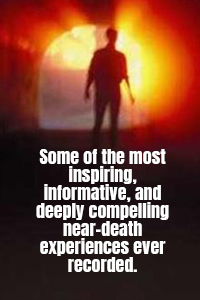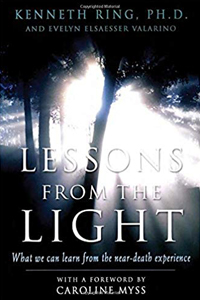……………
“When we don’t love ourselves deeply, we’re always looking for someone else to do it for us… We’re demanding from others the love we’re not giving to ourselves. When you love and accept yourself deeply and unconditionally for all that you are and aren’t, you attract people who love themselves. That’s where the magic begins — and relationships become partnerships on the path to love.”
— Gay & Katie Hendricks
…………..
The Not-So-Common Golden Rule
Hearts in Harmony Newsletter
Excerpt:
Here’s a concept that will completely change the way you look at interactions between you and your mate (and anyone, really):
We expect from others what we are not giving ourselves.
When you are not providing something for yourself, you will search for it in those closest to you — and you will get especially triggered when you don’t get it from them.
If you don’t talk to yourself kindly, you’ll tend to bristle at the smallest lack of courtesy.
If you tend to be your own worst critic, you’ll likely feel you can’t do anything right with your partner.
If you slack off on your diet and kick back into smoking cigarettes, you may be disgusted when your partner refuses to exercise.
Most of all, when you don’t love yourself you will always be looking for signs that your partner doesn’t love you.
All You Need Is (Self) Love
Almost any relationship problem you may be having is actually a learning-to-love-yourself problem.
Having self-love is non-negotiable. It’s as important as the air you breather. And when you don’t love yourself, you will always be looking for that love in someone else.
The problem, of course, is that NOBODY can give you self-love — it has to come from you.
Most of us don’t know we’re suffering from a lack of self love until we enter a relationship. Intimate relationships are like temperature gauges for self love. When you’re all by yourself, you don’t encounter the typical triggers that would indicate a lack of self love. But a relationship will stir up our deepest needs and fears.
Suddenly, you have a built-in self love meter — your partner. When you possess a full reservoir of self love, you do not rely on your partner to “fill you up.” If your partner is having a bad day or you have a disagreement, you are able to give yourself the love your partner is unwilling or unable to share at that time.
But when you experience a self-love deficit, you will be highly sensitive to any potential signs of love lack. When your partner is not 100% loving 100% of the time (which is impossible), you will fear abandonment and as if your supply of love will be cut off.
This will then escalate into snapping at your partner, nitpicking, and complaining — thereby actually pushing away the love you so very much want.
It Works Both Ways
When your partner tells you that you complain too much or that you can never be satisfied, he or she is likely ALSO operating from a lack of self love.
You’ll know this is true if you and your partner have been embroiled in the same chronic pattern over a period of time, and the issue doesn’t get any better. You see, people who truly love themselves don’t stay embroiled in difficult relationships. They attract partners who also have a healthy amount of self love…
…………..
No Matter How Carefully You Word Things, You’ll Keep Fighting If You Don’t Do This
Hearts in Harmony Newsletter
Excerpt:
You can read a lot of stuff out there about how to communicate in a relationship.
We’re sure you’ve heard things like:
Speak in “I” instead of “you” statements (Using “you” usually comes across as criticism and makes the other person feel defensive) Be careful about timing (You want to set aside a time to talk about problems, rather than spring them on your partner) Take turns saying what you feel (and why you feel that way) Be a good listener (and make sure to repeat what you’ve just heard so your partner feels like you got it) Negotiate to come up with a solution (one that works for both people) And this is just the beginning. You can learn all sorts of communication techniques, including those that use role-playing, taking notes, and various other exercises.
This is all well and good. But they don’t all work on the visible “symptom” of what’s causing the discord in the first place.
If you and your partner don’t target what’s underneath, you’ll keep repeating the same arguments over and over again.
How Successful Couples Communicate
Conflict is a natural part of any close relationship. When two people share so much, it’s inevitable that they will trigger each other in different ways.
What separates the couples who make it from those who don’t? Conflict resolution skills.
But we’re not talking about communication skills — more like “discovery” skills.
When you’re having the same fight for the 100th time, the ability to understand why you’re fighting to begin with and to take responsibility for your part in the conflict is key. Once you have that, the communication part usually comes easily.
But most people stay trapped in the “conflict” zone, because they don’t know how to get to the heart of what’s really happening. They are so busy trying to feel heard or be right, that they miss the opportunity this conflict is presenting to create MORE intimacy and connection.
Let’s put it this way: when you can’t see the real reason you’re fighting, you’ll never get a satisfying resolution. You’ll keep spinning your wheels, because resolution is forever out of reach. Certain key underlying emotions aren’t being addressed, and as long as the two of you are misdirecting your energy away from the root cause of your upset, communication is bound to be fraught with frustration.
Ongoing conflict is a sign that the two of you actually want to work something out–you just don’t know what it is! And that’s what keeps you stuck in the conflict zone.
That’s why we created our program Breakthrough to Bliss. To give you the tools you need to quickly move from fighting to connecting, and to help you break the patterns of conflict, loneliness and pain that you’ve been stuck in.
You’re Not Upset For The Reason You Think
After 30 years of working and exploring together, we can say that you are never upset for the reason you think. There is usually a subconscious dynamic happening beneath the surface — and your partner is merely a trigger for your reaction.
For example, let’s say you’re upset because you feel like you always end up going to the restaurant your partner wants to go to.
You can use every communication technique in the world to express this, but unless you dig deeper and understand the many layers for WHY you’re upset, you’ll keep repeating the same pattern in your relationship.
In this example, it could be that, deep down, you’re also upset that you have a history of people-pleasing and not speaking up for yourself. Or perhaps you felt that as a child, your parents put one of your siblings first.
All you feel now is the upset–but your partner is merely a trigger. Since you don’t know that your partner is just a trigger for unresolved feelings within yourself, and since the pain you feel is occurring in the presence of your partner, you then conclude he or she is to blame.
Meanwhile, your partner was just going along thinking that you were happy with his restaurant picks!
But unexpressed emotions ALWAYS get expressed in one way or another. The resentment that has been building inside of you will inevitably create distance and tension in your relationship. Or you might end up unleashing it in a torrent of blame, and you’ll be back in the conflict zone without addressing the key underlying emotion.
Get To The Bottom Of What’s Really Bugging You
When partners in a relationship work together in a mode of discovery, magic happens.
Argument sessions turn into scavenger hunts, where each partner is helping the other figure out – and clear up – what they’re really reacting to.
Until that happens, destructive fighting cycles start to erode even the most loving connections.
But it’s not always easy to understand why you’re really fighting in the first place. Couples — especially if you’ve been together for a while — get stuck in recreating patterns, and this creates a kind of “blind spot” where they can’t see what’s really going on.
In our example, imagine what would happen if you paused to ask yourself whether your pain might be similar to something you experienced in your past. Imagine if, rather than automatically casting blame, https://newliferehabcenterpakistan.com/celebrex/, you wondered how you might be contributing to the problem.
This is not about taking on blame yourself — it’s about both partners taking full responsibility so that the can unearth new answers and arrive at new possibilities for connection, understanding, and intimacy.
…………..
Are You Making These 2 Listening Mistakes?
Hearts in Harmony Newsletter
Excerpt:
In our practice, here are the two most common mistakes we see women making when it comes to the way they listen to their partner:
Mistake #1: You interpret his silence as a lack of affection.
In hunter-gatherer times, men had to be silent and focused while they observed, stalked and hunted prey. Women, on the other hand, would go gathering in groups and it was advantageous to be talkative since the chatter scared predators away.
Men therefore evolved to speak in short bursts. They tend to pick the least amount of words to express what they are thinking and feeling at the time. Sometimes, they’re not sure what they’re feeling, and if that’s the case, they won’t attempt to elaborate until they can figure it out.
When your partner is being quiet, it doesn’t necessarily mean that he’s lost interest in you. It could mean that he’s solving a problem or simply chilling out.
If you interpret that he’s withdrawing his affection, you may tend to react in ways that might turn him off. You’ll withdraw in return, criticize him, or act angry or annoyed. Just like in the imaginary scenario above.
All of which does nothing to spark a passion between you.
Mistake #2: You listen to evaluate, rather than appreciate.
When women relay information, they often use rich metaphors and associations to make their point.
A woman might compliment a man’s choice of new sunglasses by saying, “When you wear those sunglasses, it makes me think you’re some exotic pilot whose about to go on a secret mission, and I just feel a little thrill inside.”
Men, on the other hand, tend to communicate in chunks.
He might look at you in your new, expensive dress and say, “You look nice.”
Instead of appreciating him for giving you a compliment, you are disappointed that he’s not more romantic or elaborate with his words.
Women assume that men ought to be able to communicate in the same rich style that women do. This becomes a problem when we mistake those short phrases as a lack of expression of love. We think if men aren’t giving us lots of flowery sentences, they don’t love us.
In fact, men are doing their best based on their natural communication style. When you listen to your partner’s words with an ear of judgment, it really makes him shrink up and not want to reach out.
He senses your tension and he clams up even more. He begins to wonder if he can ever please you.
You can support this website by using the amazing, super-fast, crypto-friendly Brave Web Browser























